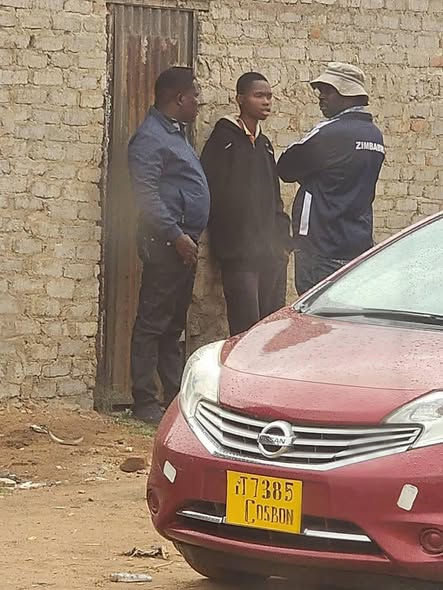Crisis Coalition Communique on meeting with Sadc Electoral Advisory Council
- Crisis Regional Media

- Apr 19, 2023
- 3 min read
On 17 April 2023, the Crisis in Zimbabwe Coalition met the SADC Electoral Advisory Council (SEAC) at Rainbow Towers Hotel in Harare. The SEAC delegation was led by Chairperson Justice Ticheme Dlamini from the Kingdom of Eswatini while the Coalition’s Spokesperson Obert Masaraure led the Crisis Coalition delegation. The SEAC Chairperson was accompanied by Advocate Notemba Tjipueja, the Deputy Chairperson of SEAC, and SADC Secretariat representatives, Mr. Magabolle and Mr Elijah Munyuki. From their brief, the SEAC wanted to deepen their understanding of basically three things namely, a) the preparedness of the Zimbabwe Electoral Commission (ZEC) to manage a free and fair election, b) the political and security situation in Zimbabwe, and c) any recommendations on improving the integrity of the elections.
In its submissions, the Coalition noted the following:
On election preparedness
ZEC, as it is currently constituted, cannot manage any free and fair election because it is captured and incestuous in its composition. The appointment of close relatives of senior ruling party members like Commissioners Mangwana, Mohadi, Shava, and Mpofu dents the credibility of ZEC. The question was asked: how can a free and fair be expected from ZEC, whose four corners relatives of the ruling class sit? The consequences of this capture include the shambolic delimitation process and report, ZEC’s refusal to respect the constitution, and issuing out the voters' roll in a reasonable time. The role of the military in the operations of ZEC was also questioned, given revelations on how its website and server are currently domiciled at some military sites in Harare. Taken together with the 2018 experience, it is only conceivable that the role of ZEC can easily be usurped by the military, denting any hope or prospects of a legitimate outcome as happened in 2018.
On political and human security questions
The Coalition noted that Zimbabwe is still trapped in the post-coup season. Present day Zimbabwe is a pseudo one-party state where no one is safe including those in the ruling ZANU PF party. Independent commissions, the media, and the judiciary have all been captured by the political elite such that any alternative or dissenting voice is punished through ‘lawfare’ or the selective application of the law. The March 2022 by-elections showed the nation the extent to which the coup government is prepared to go to safeguard power for the sake of it but not for national progression. Citizens are victimized through physical and economic means, and deprived of their various rights, including food, just for expressing their political preferences. More continue to be victimized through incarceration, of note being Member of Parliament and Lawyer Job Sikhala who has spent 307 days in detention for seeking justice for the murder of Moreblessing Ali, a member of the opposition party.

(c) On our recommendations
In summary, the Crisis Coalition delegation noted that the current environment cannot by any measure see through a credible electoral process. The Government of Zimbabwe cannot at this juncture lead or coordinate any process towards reforming and remedying the precarious state of elections preparedness. In fact, if allowed to proceed, the current scenario will only continue to tie the government and by extension the nation, in knots that will perpetuate the illegitimacy of government. The Coalition called for the SADC to deploy a mediation team to facilitate comprehensive dialogue for reforms as the Zimbabwean coup government cannot mediate itself. Whilst elections are necessary, holding elections under the current state makes them moot. They will not resolve the Zimbabwean crisis apart from disrupting civilian lives for no benefit. While it is commendable that the African Development Bank (AfDB) is currently spearheading dialogue with the government under the guise of arrears clearance and debt resolution which has also incorporated aspects of key governance and electoral reforms, we view the dialogue efforts as too elitist and unbalanced to resolve the deep-seated crises stalking the country, its citizens and the region at large.






Comments